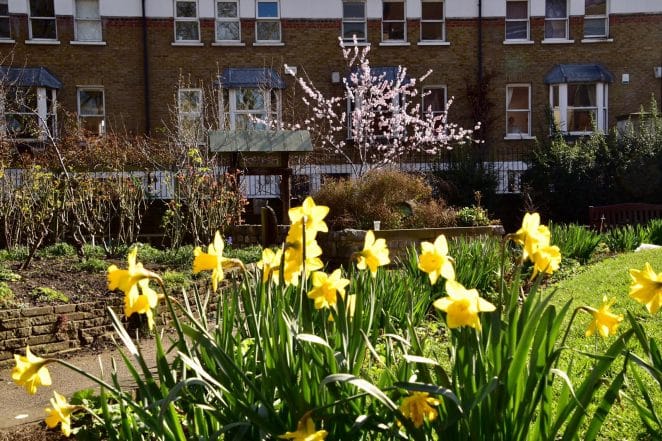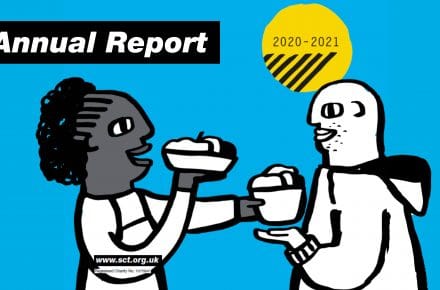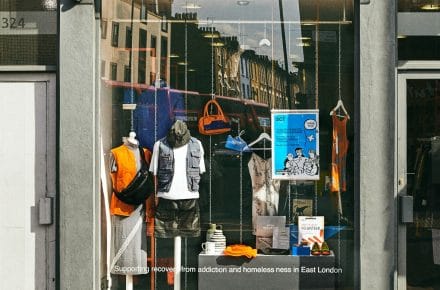You might think that with lockdown and the lousy weather that there hasn’t been much going on in the gardens around St Leonard’s Church, Shoreditch, but nothing could be further from the truth.
The effort put into the garden in the autumn by residents of Acorn House and the gardening volunteers is paying dividends with lovely displays of daffodils, euphorbias, and primulas. These will soon be replaced by tulips along Calvert Avenue. And the many fruit trees in the garden are either in blossom or beginning to show signs of the flowers breaking out.

Most of last year’s vegetables have been harvested, but broad beans have been growing slowly through the winter and the garlic and onions are poking their leaves well above the soil. And in the green house there are loads of sweet pea seedlings ready to go into the soil as soon as the weather is reliable enough.
Our three stalwart garden volunteers, Gerry, Steve, and Marsha have been hard at work keeping the garden as tidy as possible. Marsha and her husband Luke have just given the rose bed a much-needed haircut – those of us with “lockdown hair” are quite jealous, and we wish our volunteers were as handy with the hairdressing scissors as they are with the secateurs.

The volunteers have also been weeding the beds to show off the daffodils and making sure all the soil has been mulched with leaf mould, created on site using the bags and bags of leaves collected in the garden each autumn. On cold winter days, the leaf container is a favourite place for Bonnie, our garden tutor Julia’s dog, because as the leaves break down to form the ‘black gold’ that is used to condition the soil in the flower and vegetable beds, a lot of heat is generated. It’s a pretty good place for gardeners to stand to warm their toes on a chilly day as well.

At home, Julia is sowing seeds to bring to the garden. The tomatoes and chillies are growing well and the seed potatoes are chitting* ready to go into the soil in the next couple of weeks. Not much joy with the Cosmos and Gaura for the flower beds though Cerinthe and Love in a Puff are looking more promising.

As well as being our garden tutor, Julia is a horticultural therapist. Horticultural Therapy is a posh way to describe what every gardener knows; life is better with mud under your nails. Studies have shown that gardening increases physical fitness and helps weight loss. If you grow food, it can lead to a better diet. If you work with other people on a gardening project it can build a sense of community and reduce loneliness and isolation. But, when talking to people who garden about why they do it, those reasons are well down the list. Most say something like ‘it makes me feel good’, ‘it lifts my mood’. During her work in the gardens, people have reflected…
“There are only positive thoughts in the garden.”
“It’s like rehab for the mind”
For people in recovery, learning to nurture plants can be a way of learning to nurture yourself. And gardening without chemical input is a useful metaphor for a new way of life.

There are no gardening sessions for residents and students running at the moment because of Covid restrictions. But as soon as Julia is back full time and it is safe to open up The Hub, the gardeners will need as many people as possible who are ready to get their hands dirty to make sure we are in a fit state for residents, students and the local community to enjoy the space the garden has to offer.
St Leonard’s Gardens – which sit adjacent to our Recovery Hub and the Homeless Drop-In – are carefully maintained by our students and volunteers throughout the year. To support us or get involved, click here.
*This isn’t a spelling mistake, “chitting” is when you leave potatoes to sprout before planting them in the ground.


